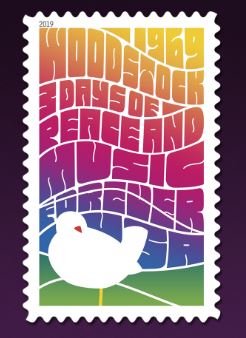
Fifty years ago today, on August 8th, 1969, the Beatles walked back and forth across a street they knew well: Abbey Road. John Lennon, Paul McCartney, George Harrison and Ringo Starr lined up and crossed a few times, while a cop held up traffic, right outside the studio where they were already booked to show up for work that day. The whole photo session took only 10 minutes.
Yet this became their most iconic image: sky of blue, trees of green. It sums up the sunny confidence of the most popular album the Beatles ever made — which also turned out to be the last.
Abbey Road turned a zebra-stripe crosswalk on an ordinary London street into holy ground.
Oh, that magic feeling.
Fifty years later, the Abbey Road story takes a new turn with the revelatory Super Deluxe Edition, which drops on September 27th in time for the anniversary. It sheds new light on the essential weirdness of this music — how did the Beatles create such warmth and beauty while they were in the middle of breaking up? “It’s the Last Supper,” producer Giles Martin, son of the late George Martin, tells Rolling Stone. “It’s having great sex with an ex-girlfriend. They said, ‘Let’s do one last great thing.’”
The new Abbey Road edition follows the model of the Sgt. Pepper and White Album sets from the past couple of years. And like them, it explores the vaults to find fresh surprises in music you think you already know by heart. It’s the Beatles’ best-selling album —but it’s also a bittersweet finale from four friends preparing to go their separate ways forever. It’s their farewell — but you can also hear the smiles returning to their faces. The last time John, Paul, George and Ringo played together was when they cut “I Want You (She’s So Heavy).” Yet all four were on fire as songwriters — even Ringo, who contributes “Octopus’ Garden.” The music has a childlike warmth. “Abbey Road is a kids’ album,” Martin nods. “Come Together’ is a blues groove — but it’s also my 11-year-old daughter’s favorite Beatle song.”
There’s a new mix from Martin and engineer Sam Okell in stereo, 5.1 surround sound and Dolby Atmos. There’s a coffee-table book with Paul McCartney’s foreword. There’s also 23 outtakes and demos to enhance the original album. Compared to Sgt. Pepper or the White Album, the sessions were orderly and civilized. George Martin, still wary after the madness of 1968, agreed to come back and produce only if they promised to be on their best behavior. So these outtakes don’t include the same kind of far-flung studio experiments. “They’re not really jamming,” Giles Martin says. “It’s not like the White Album — with this record, maybe to protect against arguments, they had a pretty damn good idea about the direction each song was going to go in before they recorded it.”
In early 1969, the Beatles tried to make Get Back, the album that turned into Let It Be. It turned into open warfare, nearly ripping the band apart. It was Paul who talked the others into giving it one more go. “They came in knowing that this was the end,” Martin says. “There was never the illusion that this was going to be the big start of something new.”
But since these four boys were the Beatles, they couldn’t stop showing off — for each other, for the world, for themselves. So facing the final curtain just fired up their competitive edge. “There wasn’t that element of continuation: ‘We’ll put it out, then do something else.’ It wasn’t the White Album, where it feels like, ‘This is where we are right now, and where we’ll be in six months time, who knows, but we’re on this journey and this is part of the journey,’” says Giles Martin. “They knew this was it. The way I would explain it is, you’ve only got a certain number of breaths or heartbeats left in your life, and you want to make sure they’re important. That’s the essence of Abbey Road — they knew how important it was.”

